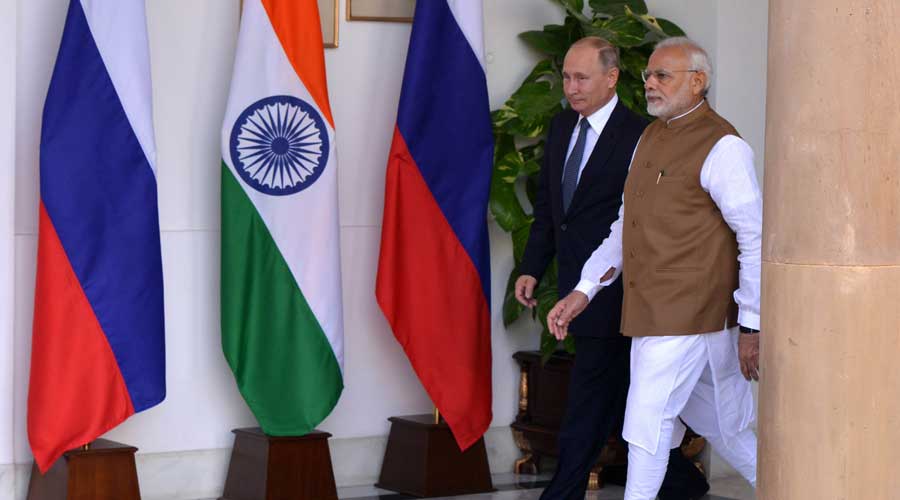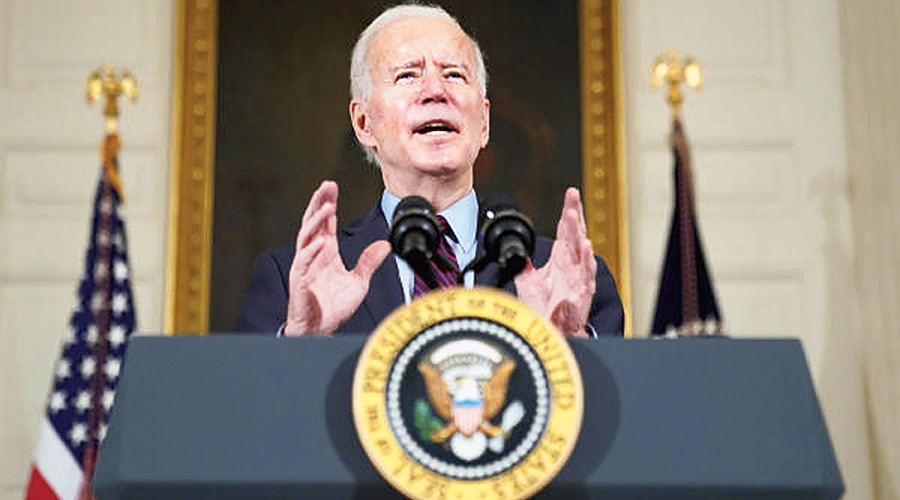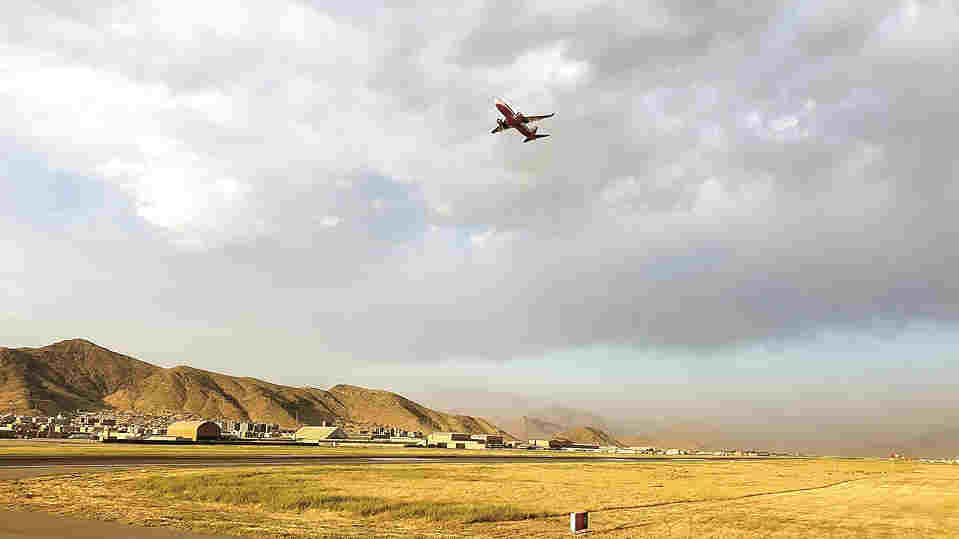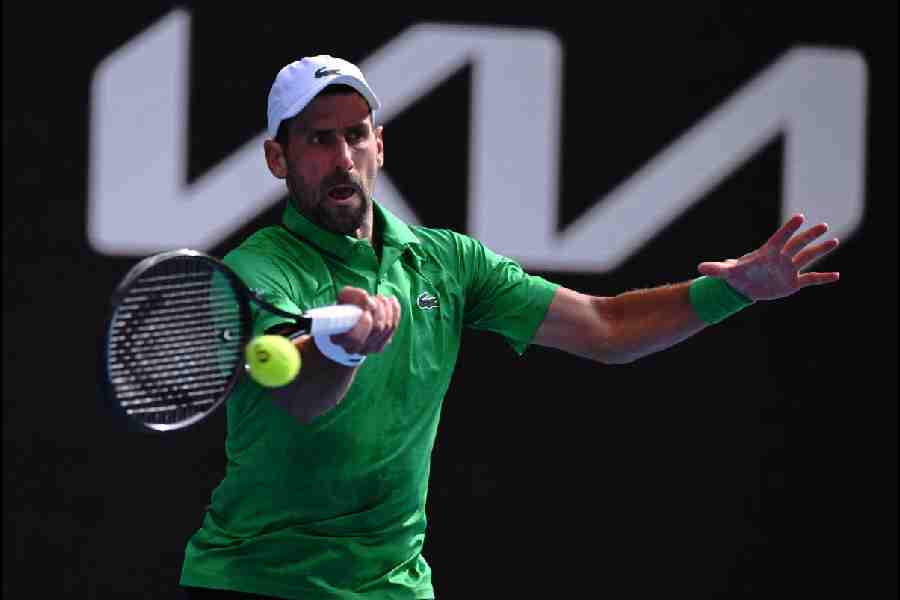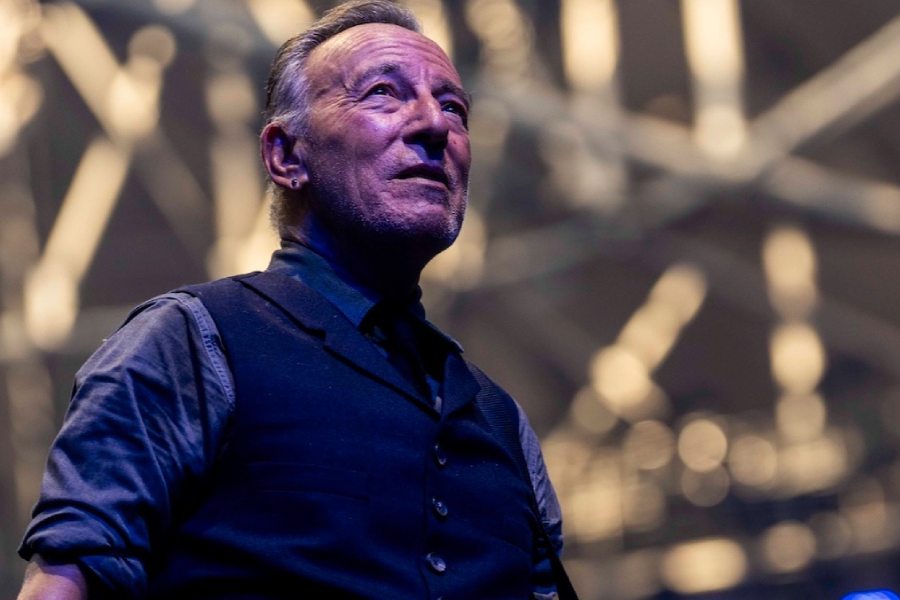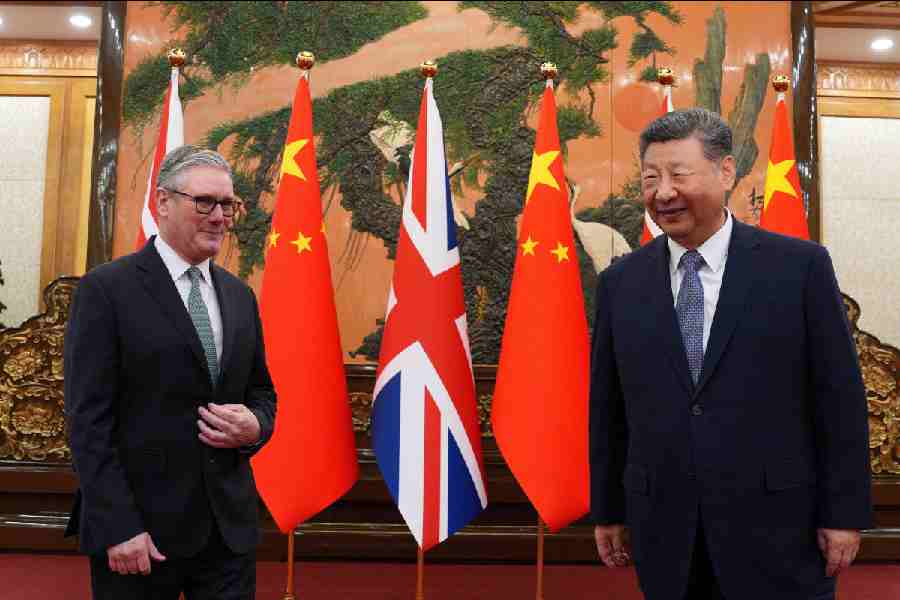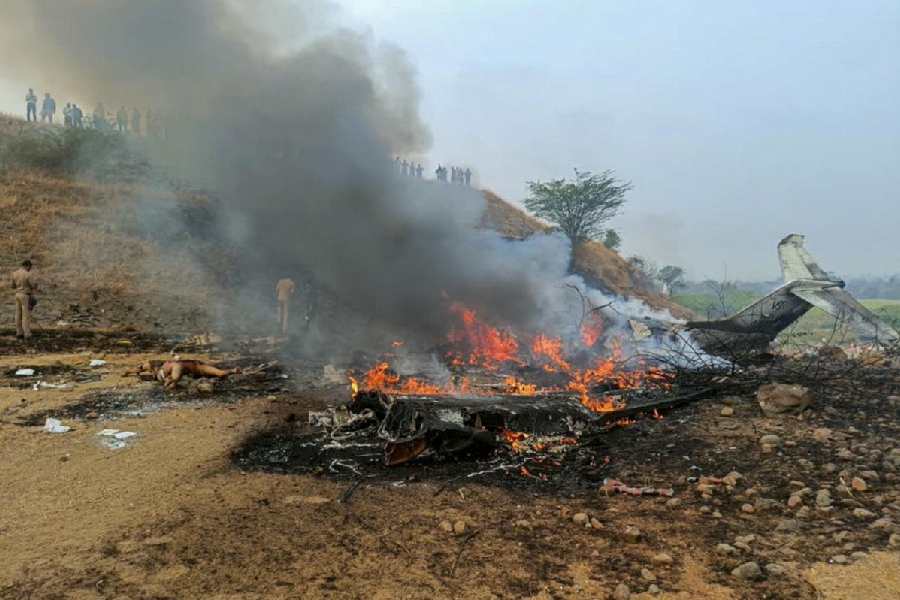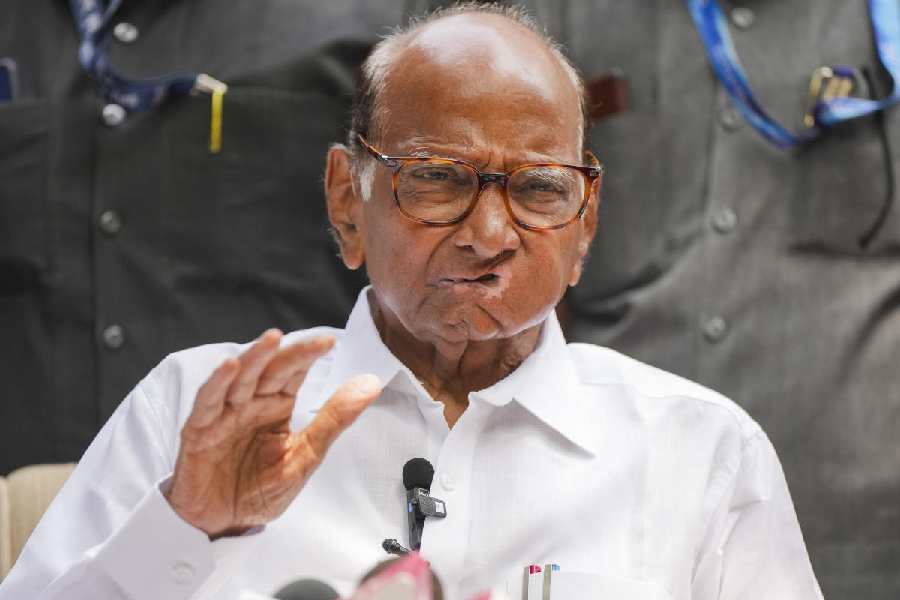Prime Minister Narendra Modi and Russian President Vladimir Putin conversed over the phone ahead of Tuesday evening’s G7 meeting on the Afghan situation, and decided to establish a permanent channel of communication between their countries for bilateral consultations on Afghanistan.
“Had a detailed and useful exchange of views with my friend President Putin on recent developments in Afghanistan,” Modi tweeted. “We also discussed issues on the bilateral agenda, including India-Russia cooperation against Covid-19. We agreed to continue close consultations on important issues.”
The tweet was silent on the permanent channel of communication, which was later mentioned by the Kremlin in a statement that was translated by the Indian embassy in Moscow.
“During the exchange of views on the situation in Afghanistan, the importance of coordinated efforts contributing to the establishment of peace and stability in the country, ensuring security in the region as a whole, was noted,” the Kremlin said.
“The intention was to increase cooperation in countering the spread of terrorist ideology and the drug threat emanating from the territory of Afghanistan. It was agreed to form a permanent bilateral channel of consultations on this issue.”
The Modi-Putin conversation was India’s first high-level engagement with regional stakeholders in Afghanistan. The Indian deputy national security adviser had met his counterpart in Moscow last week and discussed Afghanistan. Russia is among the few countries that have kept their missions in Kabul operational.
Just as India fears that the Taliban’s control over Afghanistan might give a fillip to anti-India terrorist organisations, Moscow wants to secure its allies in Central Asia.
As head of the Moscow-led military alliance — the Collective Security Treaty Organisation — Russia is obligated to ensure the defence of its allies. Although the Taliban are a banned organisation in Russia, the two have met — including once in Moscow — and the Islamist outfit has promised not to violate the borders of the Central Asian countries.
While addressing the special session of the Human Rights Council on Afghanistan in Geneva, India’s permanent representative to the UN there, Indra Mani Pandey, said: “We hope the situation in Afghanistan does not pose a challenge to its neighbours and its territory is not used by terrorist groups such as the Lashkar-e-Toiba and the Jaish-e-Mohammed to threaten any other country.”
On Afghanistan’s future, Pandey iterated that India hopes for an “inclusive and broad-based dispensation which represents all sections of Afghan society”.
“Voices of Afghan women, aspirations of Afghan children and the rights of minorities must be respected. A broad-based representation would help the arrangement gain more acceptability and legitimacy,” he said.
Op Devi Shakti
India has given the name “Operation Devi Shakti” to its evacuation/ repatriation exercise from Kabul. Another flight has brought in 78 evacuees via Dushanbe, Tajikistan. Among them were 44 Afghan Sikhs who brought along with them three Guru Granth Sahibs.
Union minister Hardeep Singh Puri was at the airport to receive one of the Guru Granth Sahibs, which were taken in a procession to the Guru Arjan Dev Gurdwara at New Mahavir Nagar.

